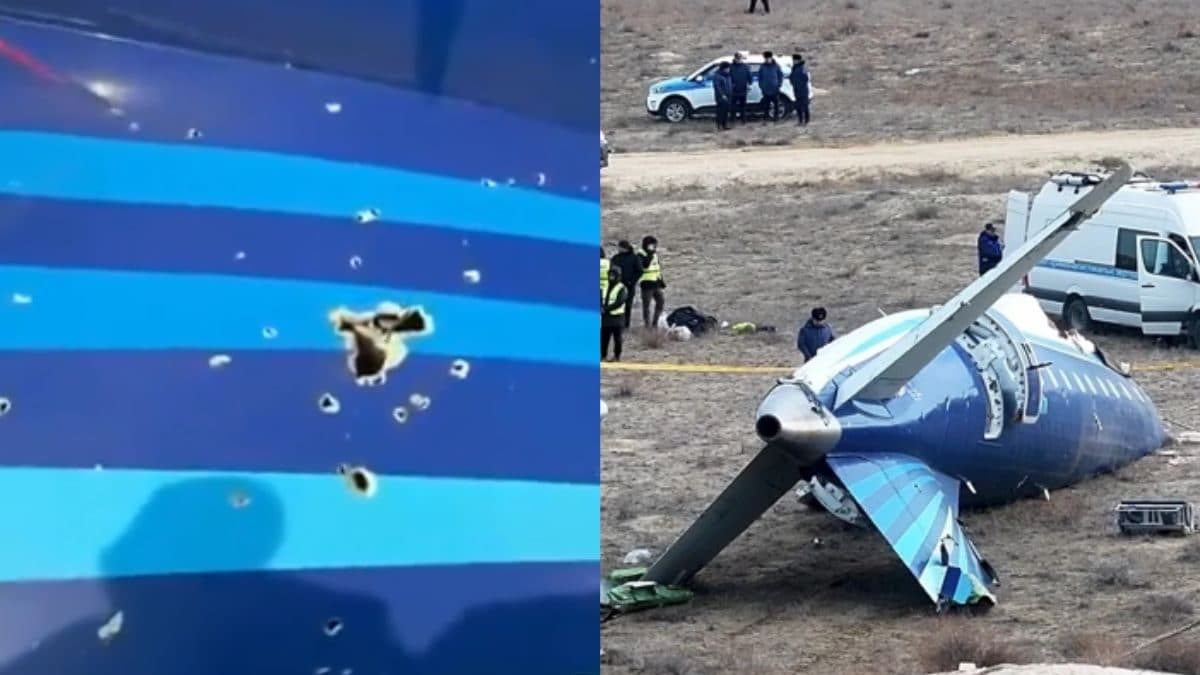With Russia preoccupied with its war in Ukraine and Hezbollah weakened by a yearlong conflict with Israel, Syrian President Bashar al-Assad appears to be largely on his own in the fresh fight against the rebels.

Syrian opposition fighters ride along the streets in the aftermath of the opposition's takeover of Hama. (Photo: AP)
In their latest major gain in the armed advancement against Syrian President Bashar al-Assad, the opposition rebels seized control of the southern city of Daraa on Saturday, the fourth city to fall into the hands of the militant insurgents in a week. This dramatic escalation of the ongoing conflict in the Middle Eastern country poses a growing threat to Bashar al-Assad.
The fall of Daraa is significant as it is the birthplace of the 2011 uprising against Assad and is the capital of a province of about 1 million people, bordering Jordan.
Meanwhile, reports claimed that the Assad regime has sought weapons and intelligence help from countries including the UAE, Egypt, Jordan, and Iraq as the country's military continues to surrender major centres to the insurgents. According to the Wall Street Journal, some Arab officials are urging Assad to leave the country.
SYRIA CIVIL WAR | LATEST DEVELOPMENTS
Syrian rebels, led by the Islamist militant group Hayat Tahrir al-Sham (HTS), launched a surprising offensive on November 27, rapidly advancing from their stronghold in the northwest to seize large areas of northern and central Syria, including the key cities of Aleppo, Hama and Deir Ezzor.
The militants are edging closer to the city of Homs, Syria's third-largest, which could become a significant target in their campaign against President Bashar al-Assad. Located at a key crossroads between Damascus and Syria's coastal provinces of Latakia and Tartus--regions where Assad has strong support--Homs is also home to one of Syria’s two state-run oil refineries.
The fresh wave of attacks killed at least 200 insurgents on Friday alone in various cities, as the Syrian forces also countered the rebel offensive, according to war monitors. The UN say at least 370,000 people have been displaced with fears this figure could hit 1.5 million.
US Secretary of State Antony Blinken held discussions with Turkish Foreign Minister Hakan Fidan on Friday regarding the need for a political solution in Syria, where rebel forces are advancing. Turkey, sharing a 911-kilometer-long border with Syria, has been a key supporter of opposition groups seeking to oust Assad since the outbreak of the Syrian civil war in 2011. Blinken "emphasised the importance of protecting civilians, including members of minority groups", across Syria.
The leader of the rebel group Hayat Tahrir al-Sham (HTS) Abu Mohammad al-Jawlani says they want to overthrow the government and create a new one. Along with HTS, the fighters include forces of an umbrella group of Turkish-backed Syrian militias called the Syrian Army.
The US said that they are closely monitoring developments in Syria, where opposition forces have jolted President Bashar al-Assad's grip on power, White House spokesperson Karine Jean-Pierre said on Friday. Meanwhile, Syrian opposition activists said that the US-backed Kurdish forces who control eastern and northeastern Syria began to encroach on government-held territory.
As the rebels pressed their offensive, Russia and Jordan on Friday urged their nationals to leave Syria. Jordan has also closed its only passenger and commercial border crossing into Syria.
Meanwhile, Iran-backed Lebanese armed group Hezbollah sent a small number of "supervising forces" from Lebanon to Syria overnight to help prevent anti-government fighters from seizing the strategic city of Homs, accordign to news agency Reuters.
India on Friday urged its citizens to avoid all travel to Syria and asked those who are in Syria and can leave the country to do so at the earliest. "Those who can, are advised to leave by the earliest available commercial flights and others are requested to observe utmost precaution about their safety and restrict their movements to the minimum," the Ministry of External Affairs (MEA) said.
Assad regained control of most of Syria after a decade-long civil war, with the crucial support of key allies such as Russia, Iran, and Lebanon's Hezbollah. However, these allies have recently been weakened and diverted by other crises, including the wars in Ukraine and Gaza, providing Sunni Muslim militants with an opportunity to retaliate.
Published On:
Dec 7, 2024

 2 weeks ago
2 weeks ago


















